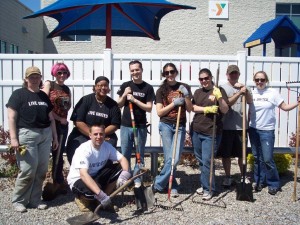UR President Joel Seligman will now serve as the 2013 Chair of the United Way of Greater Rochester, a community fundraising campaign that targets Rochester’s critical issues, after chairing the University’s branch of the campaign, which kicked off this year on Thursday, Feb. 14, since 2005.
The University’s fundraising goal has increased by 10 percent from last year to $1.5 million, evidence of increasing participation seen in recent years, Seligman said.
“When I’m Chair, I’m hopeful that we’ll do particularly well,” he explained, noting that his new position will not change how the University conducts its annual campaign.
President of United Way of Greater Rochester Peter Carpino said the organization seeks a “high-profile community leader” to chair the campaign.
“[Seligman] has truly shown great support for our community and our United Way throughout the years so we knew he would be a great chair for our campaign,” Carpino said.
UR has participated in the United Way of Greater Rochester since George Eastman founded the fund, then called the War Chest, in 1918. UR has been one of the largest fundraisers for United Way for many years, Carpino said.
The overall monetary goal of the campaign will not be announced until March 7, but Carpino said that under Seligman’s leadership, the campaign is “setting out to increase participation, especially participation at the leadership level.”
“[Seligman] and the campaign cabinet have developed a very strategic fundraising plan for this year, and we have high hopes for the success of this year’s campaign,” Carpino said.
The University will officially launch its campaign on Feb. 28. Fundraising will end the first week of May.
Director of the University’s United Way campaign Andrea DeMeo also said that this year’s goal is increased participation.
“Every gift makes a difference, no matter the size,” she said.
In a video about the 2013 campaign, Seligman explained that the transition of Rochester’s local economy to a “more diverse base with fewer large businesses inspires many of us to become more like George Eastman ourselves by making a greater commitment than in the past.”
UR optical engineering professor Duncan Moore noted in an op-ed in The New York Times last February that Kodak’s demise did not lead to the economic devastation seen in cities such as Detroit because high-skilled workers, including those laid off from Kodak, created “a valuable labor pool for start-up companies, particularly in optics and photonics.”
Unlike other cities in the Rust Belt, Rochester’s entrepreneurial class, nurtured by the presence of higher education institutions like UR and RIT, has been instrumental in providing jobs and economic vitality post-Kodak and other large employers, Moore wrote.
“This is a tougher year than some because Kodak entered bankruptcy organization and there’s been some downsizing among major employers,” Seligman said. “This is our community and we want to support it. We are not a community in decline.”
Although United Way is a workplace fundraising campaign and efforts have not centered around soliciting student donations, Director of the Rochester Center for Community Leadership Glenn Cerosaletti said that this semester he has reached out to the Community Service Network (CSN) to “build momentum around students’ efforts.”
Last year, United Way of Greater Rochester raised $27,857,936 and allocated $17.5 million from donations to its Community Fund to community programs in five areas: early childhood, school age youth, aging, crisis services and disability services. This fall, United Way announced a new six-year Blueprint for Change plan defining key areas for fund allocation. The four new strategies are: meeting basic needs, giving babies the best start, preparing kids for success and supporting seniors and caregivers.
Buletti is a member of the class of 2013.






